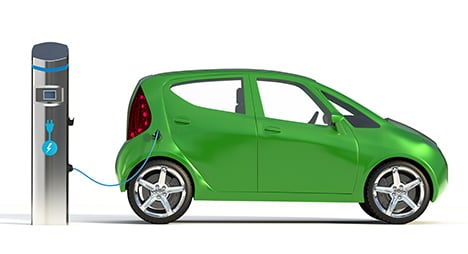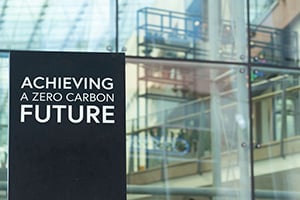By Anne Nichols
Sustainability Analyst Intern
Sustainable Investment Group (SIG)
 Atlanta is currently the second largest metropolitan market for electric vehicles (EV) in America. “It is rare that Georgia is on the leading edge of a sustainable practice,” Mandy Mahoney, the narrator and president of Southeast Energy Efficiency Alliance, pointed out at the April 4 Southface Atlanta Round Table. As frontiers in the EV craze, Atlanta is building the bridge as they walk over it and they are learning a lot on the way.
Atlanta is currently the second largest metropolitan market for electric vehicles (EV) in America. “It is rare that Georgia is on the leading edge of a sustainable practice,” Mandy Mahoney, the narrator and president of Southeast Energy Efficiency Alliance, pointed out at the April 4 Southface Atlanta Round Table. As frontiers in the EV craze, Atlanta is building the bridge as they walk over it and they are learning a lot on the way.
One of the most difficult aspects of this widespread switch to electric vehicles is providing the infrastructure to charge these cars. Both the public and private sectors are struggling with providing enough electric vehicle charging stations and enforcing appropriate usage.
Steve Bradley, Senior Executive of Environmental Sustainability at Cox Enterprise, Inc., claims his company previously had about two employees with electric vehicles and almost miraculously overnight saw an increase to over 100. A large part of this increase was the Georgia tax credit.
An individual may receive an income tax credit of 10% up to $2,500 if he/she purchases or leases a new alternative fuel vehicle. Building new charging stations proved challenging to Bradley and his team. In fact, he called it an “infrastructure nightmare” trying to provide enough energy to the stations and locate them in convenient locations. He highly recommends incorporating these installations into the design phase rather than waiting until after construction.
From a community point of view, Gray Kelly, Director or Property Operations for Paces Properties, describes issues with the public’s usage. A particularly dense area with limited parking that he oversees is the Krog Street Market. There are two EV charging stations at this location for free of charge and he often gets complaints. These complaints include cars being unplugged, conventional cars parking in the reserved spaces, and broken stations. Kelly claims he had to repair these stations six times since installation and they are expensive to regularly maintain.
While there may be a learning curve to providing EV charging stations, does this mean we should throw out the idea of public charging stations all together? Don Francis, Coordinator for Clean Cities – Georgia Coalition, disagrees. He has over 20 years in the industry trying to convince the U.S. to move away from petroleum-based systems and start considering alternative transportation.
He claims that over 80% of charging occurs at home, which is better for the grid as they often charge at night meaning less demand during peak energy demand times. However, there is still a need to offer charging at work and public places. For employees with electric vehicles and long commutes, charging stations are a necessity to ensure they can get home without being stranded.
In public places, Francis describes a syndrome called “range anxiety”, where the driver in question is worried their vehicle will not have sufficient charge to get them where they are going and back. Public charging stations ease this anxiety and allow for greater mass adoption of electric vehicles.
 To combat cars being unplugged, conventional vehicles parking in EV charging station spots, and electric vehicles parking in the designated spot long after they are fully charged, Francis suggests that signage is key. Signs should set an hour limit and clearly state that these spaces are specifically reserved for electric vehicles only. In some cases, he suggest charging $1 for the first four hours of charge and then increasing the fare to $20 an hour for additional time. Francis says that one time being charged with an $84 charging fee will be the last time anyone ever forgets to unplug and move their car.
To combat cars being unplugged, conventional vehicles parking in EV charging station spots, and electric vehicles parking in the designated spot long after they are fully charged, Francis suggests that signage is key. Signs should set an hour limit and clearly state that these spaces are specifically reserved for electric vehicles only. In some cases, he suggest charging $1 for the first four hours of charge and then increasing the fare to $20 an hour for additional time. Francis says that one time being charged with an $84 charging fee will be the last time anyone ever forgets to unplug and move their car.
While issues surrounding the expansion of electric vehicles remain, these problems should not deter us from investing in this alternative transportation option and expanding infrastructure. With innovative thinking and pre-construction planning, electric vehicles are a sustainable alternative to our current gas guzzling ways.
© 2015 Sustainable Investment Group (SIG). All rights reserved.



